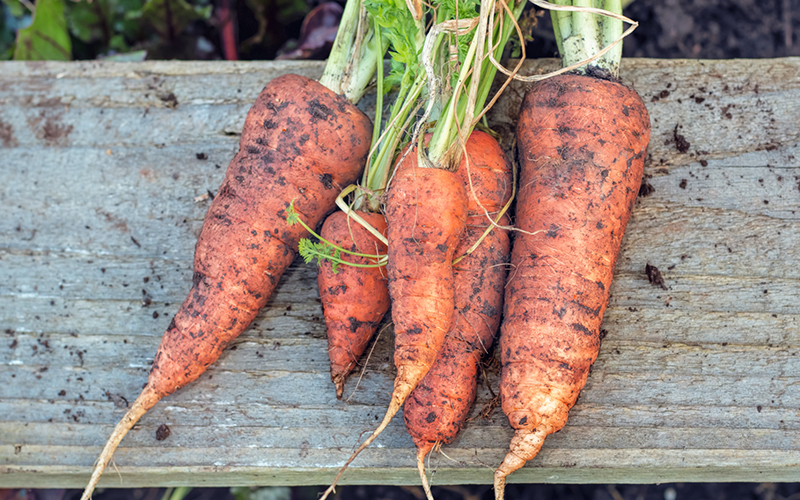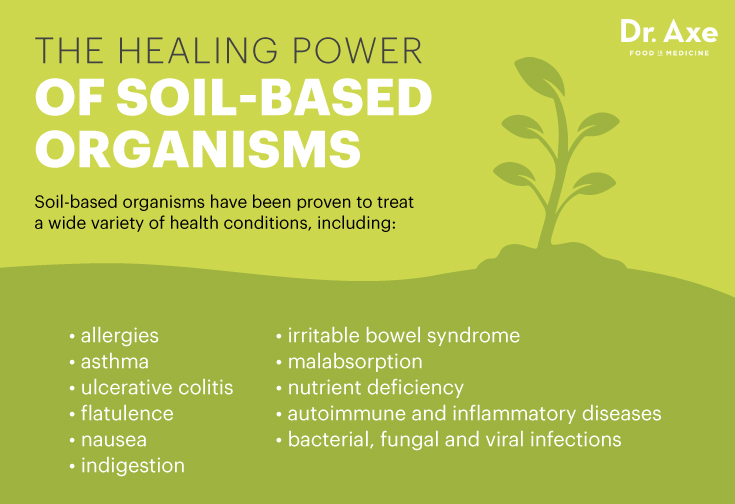
by guest blogger Josh Axe, DNM, DC, CNS
People have been eating dirt for thousands of years—until now.
An obsession with germ-free homes and a sterile food system is leaving us craving dirt—more specifically, all of those beneficial soil-based organisms found in dirt.
For our great-grandparents and earlier ancestors, pulling a carrot from the ground, dusting off some of the soil, and eating it was a common practice. These natural probiotics in the soil helped create a healthy microbiome in the gut.
If the concept of eating dirt seems gross to you, consider this: If you were to take away the water in our bodies, you’d be left with mostly dirt. That’s because we’re made of 60 of the most abundant elements in the Earth’s crust.
To be clear, when I say “eat dirt,” I don’t necessarily mean eating a handful of soil. But getting daily micro-exposures to soil-based organisms (SBOs) can do wonders for your health, particularly in healing leaky gut syndrome.
SBOs help improve your immune response while supporting gut health.
Just as plants grow best in healthy soil teeming with highly active microorganisms, you, too, need these organisms to live a long, healthy life.
There are more than 800 studies referencing SBOs.

Here are some specific ways SBOs improve health:
Vitamin Production
SBOs aid your body in creating new compounds like B vitamins, vitamin K2, and antioxidants. These beneficial bugs also help kill off or harmful pathogens like candida, fungi, and parasites. SBOs also regulate your immune system while binding to toxins, helping your body flush them out.
Skin Issues + Rheumatoid Arthritis
The ocean possesses healing powers, and some of that has to do with dirt-based organisms in the water. Beneficial microbes and bacteriophages present in salt water are therapeutic. A study in Seminars in Arthritis and Rheumatism found that salt baths from Dead Sea minerals decrease skin inflammation, rheumatoid arthritis, and psoriasis.
Allergies
A dog brings more than friendship to your household. Owning a dogs also help reduce a child’s chances of allergies. Those pup paws bring in a diverse range of microbes from the outdoors, helping to prime a young immune system. In fact, having a dog reduces a child’s risk of developing allergies by 50 percent. Owning a cat lowers the risk by 48 percent, according to a study in Clinical and Experimental Allergy.
 Josh Axe, DNM, DC, CNS, is a doctor of natural medicine, clinical nutritionist, and author with a passion to help people get well using food as medicine. He operates one of the world’s largest natural health websites at DrAxe.com, and his newest book, Eat Dirt, gives readers a five-step plan to heal leaky gut once and for all.
Josh Axe, DNM, DC, CNS, is a doctor of natural medicine, clinical nutritionist, and author with a passion to help people get well using food as medicine. He operates one of the world’s largest natural health websites at DrAxe.com, and his newest book, Eat Dirt, gives readers a five-step plan to heal leaky gut once and for all.




No comments yet.